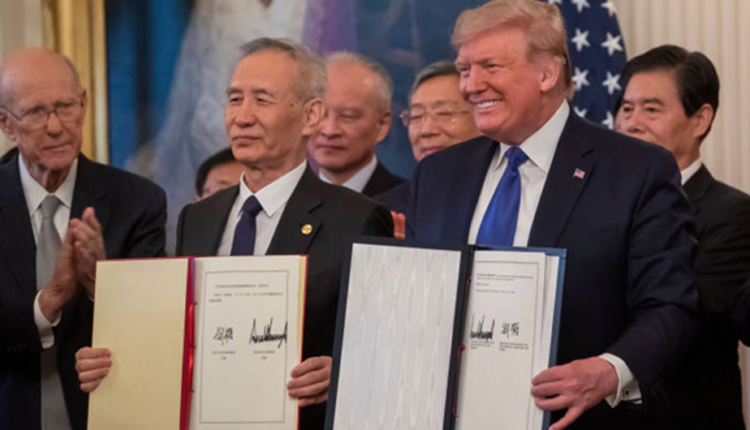U.S-China Trade Deal Is A Disaster

World economy experts gathered in the recently concluded World Economic Forum in Davos, Switzerland consider the U.S-China phase deal a strategic error and the birth of an economic disaster. Most of the professionals gathered here argue that the trade deal ignores the threat China presents to the world economy, moves away from the tenets of free trade, and disregards the intellectual property theft issues and the propping up of state sponsored-companies in the international markets. Others have gone on to question the practicality of such a deal and its “unrealistic numbers, which puts the whole viability of the deal into question.”
Chad Bown from Peterson Institute for International Economics and former International trade economist at the White House is particularly pessimistic of the agreement. He, for instance, is critical of the clause that requires China to buy $200 billion worth of goods from the USA in the next two years. Included in this agreement is the undertaking by China to buy at least $40 billion worth of farm produce from U.S markets. He argues that China can only achieve this by diverting attention from its economic partners like the European Union, Canada, and Brazil. These sentiments were echoed by Jeff Currie a commodities expert at Goldman Sachs who reads “a lot of uncertainty about how you would achieve $40 (billion) or potentially even $50 billion of agricultural purchases.”
Economic news analysts probing the deal have also pointed to the fact that phase one of the deal doesn’t address the blockade of trade tariffs between Washington and Beijing. According to a recent report by Oxford Economics, these tariffs affect more than two-thirds of all imported goods from China and have jumped from an average of 3% in 2016 to 19.3% in 2019. And while the Trump administration is adamant that Chinese companies will bear the tariffs, enough evidence points to the fact that these tariffs trickle down to retailers, small businesses, and consumers in the form of hidden tax.
These plus the fact that it does not touch on the international business inhibitions by the Chinese government or propping of state subsidiaries to compete internationally makes it alien to the health of the U.S and world economy.
Trade deal informed by politics
While signing the trade deal, President Trump said that he was “righting the wrongs of the past and delivering a future of economic justice and security for American workers, farmers, and families.” The details of the agreement could not, however, be further from this truth. In his make America Great Again quest, President Trump had vowed to fight against anyone and everyone that’s actively undermining American businesses and economy. By not taking such critical issues as theft of intellectual property into account, the Trump administration seems to be conceding to Beijing.
Critics of the Trump administration have also questioned the rushed agreement signing process and even termed it an election campaign tool. They argue that with the 2020 elections drawing ever close and such grave political issues as the impeachment going hanging over Trump’s presidency, he needed a major win, thus the not-so-well thought China trade deal.
Economists at the WEF were, however, not lost to the stabilizing effect deal has on the world economy. Head of WTO Roberto Azevedo started by arguing said that deal’s “political impact cannot be underestimated.” The Mexican economy minister, Graciela Márquez Colín, on the other hand, echoed his sentiments terming the deal as an “intermediate step” to calming down the ranging global political and economic tensions.



